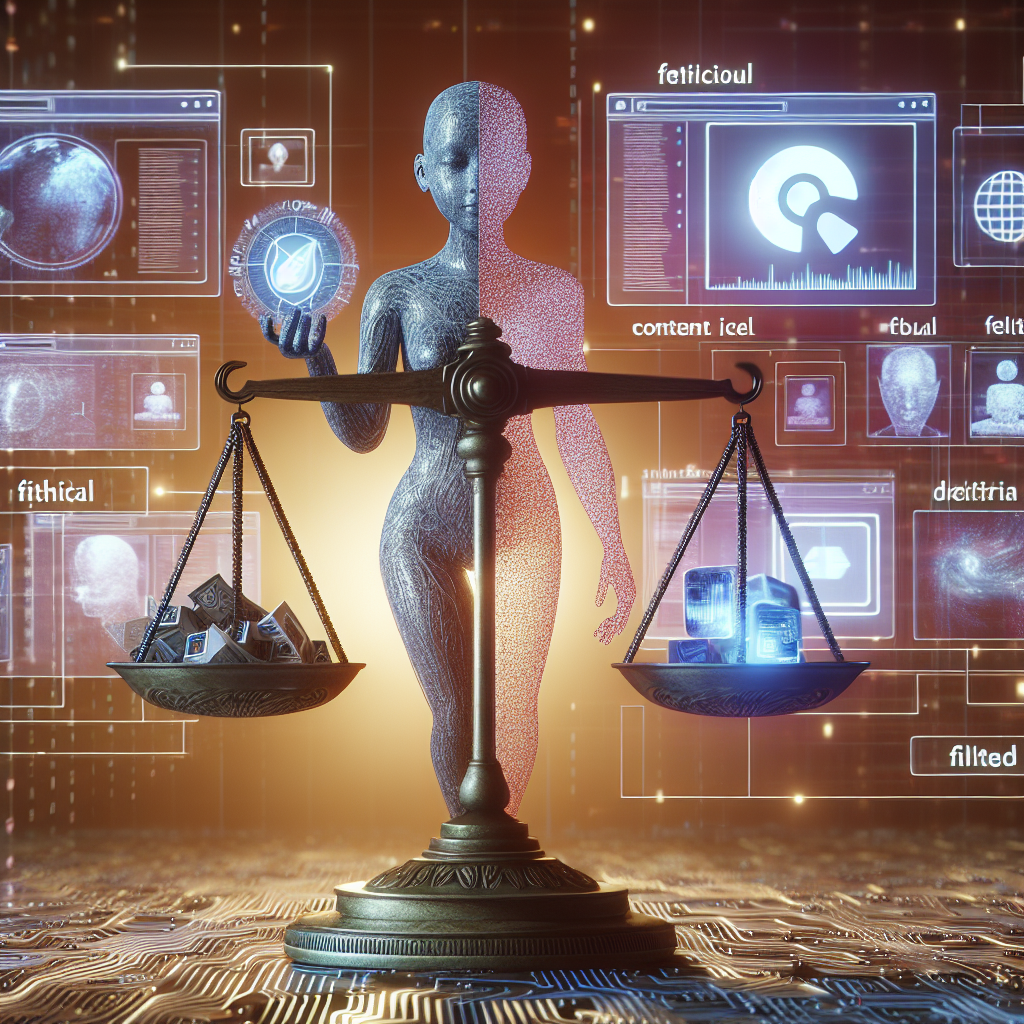The Ethics of AI-driven Content Moderation
In today’s digital age, social media platforms and online communities have become an integral part of our daily lives. With millions of users creating and sharing content every day, content moderation has become a crucial aspect of maintaining a safe and respectful online environment. However, with the sheer volume of content being uploaded, human moderators alone cannot keep up with the task. This is where AI-driven content moderation comes into play.
AI-driven content moderation uses artificial intelligence algorithms to analyze and filter out inappropriate or harmful content on social media platforms. While AI moderation has proven to be effective in flagging and removing harmful content such as hate speech, bullying, and misinformation, it also raises ethical concerns.
One of the main ethical dilemmas surrounding AI-driven content moderation is the issue of bias. AI algorithms are trained on large datasets of labeled content to recognize patterns and make decisions. However, these datasets can be biased, leading to discriminatory outcomes. For example, a biased dataset may result in certain groups of people being unfairly targeted or censored. This raises concerns about freedom of speech and the potential for censorship.
Another ethical concern is the lack of transparency in AI algorithms. Many social media platforms use proprietary algorithms to moderate content, making it difficult for users to understand how decisions are being made. This lack of transparency can lead to confusion and mistrust among users, as they are left in the dark about why their content is being flagged or removed.
Additionally, there is the issue of accountability in AI-driven content moderation. Who is ultimately responsible for the decisions made by AI algorithms? If a harmful piece of content slips through the cracks and causes harm, who should be held accountable? These questions highlight the need for clear guidelines and regulations around AI-driven content moderation.
Despite these ethical concerns, AI-driven content moderation has its benefits. AI algorithms can process vast amounts of data at a rapid pace, allowing for quicker and more efficient moderation. They can also help reduce the emotional toll on human moderators who are often exposed to disturbing and harmful content on a daily basis.
FAQs:
Q: How does AI-driven content moderation work?
A: AI-driven content moderation uses algorithms to analyze text, images, and videos for harmful or inappropriate content. These algorithms are trained on large datasets of labeled content to recognize patterns and make decisions on what content should be flagged or removed.
Q: How accurate is AI-driven content moderation?
A: AI-driven content moderation can be highly accurate in identifying and flagging harmful content. However, there is still room for improvement, as AI algorithms can sometimes make mistakes or miss nuanced context.
Q: How can bias be addressed in AI-driven content moderation?
A: Bias in AI algorithms can be addressed by using diverse and representative datasets for training, implementing bias detection tools, and regularly auditing and retraining algorithms to ensure fairness.
Q: What are the potential risks of AI-driven content moderation?
A: The potential risks of AI-driven content moderation include bias, lack of transparency, accountability issues, and the potential for censorship and infringement on freedom of speech.
In conclusion, the ethics of AI-driven content moderation are complex and multifaceted. While AI algorithms have the potential to improve the efficiency and effectiveness of content moderation, they also raise important ethical concerns around bias, transparency, and accountability. It is crucial for social media platforms and policymakers to address these concerns and establish clear guidelines and regulations to ensure that AI-driven content moderation is used responsibly and ethically.

